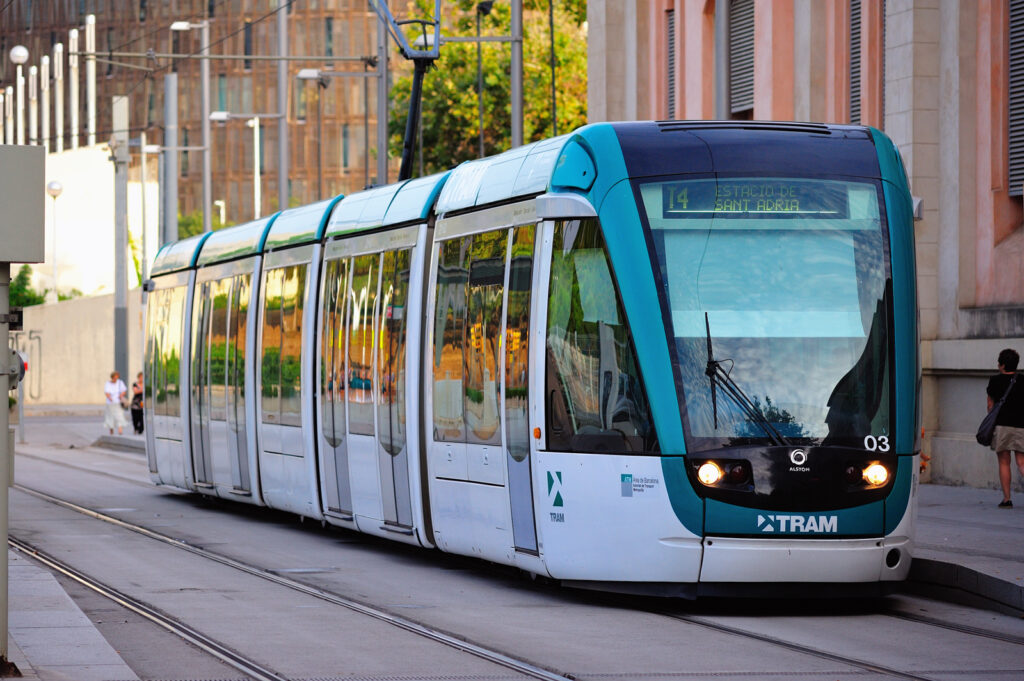The week of July 15, Moventis, as part of TRAM, began operational tests on the new tram section in Barcelona. At 10:30 p.m., a tram departed from Glòries station and traveled along the new tracks, turning onto Diagonal and heading up to Verdaguer. This first journey was conducted using the underground catenary system, APS, a third rail that provides electricity from the ground instead of traditional overhead catenaries.
During these integration tests, the tram moved at a speed of five kilometers per hour, while about twenty technicians verified the tracks, electrical connections, stations, traffic light coordination, and communication systems. The tests were conducted at night to avoid interference with the city’s normal operations.
These initial tests will allow for the planning of future tests and “blank runs,” where the trams will operate without passengers under normal conditions, with adjusted traffic lights and station stops. Valdés, the general director of the Metropolitan Transport Authority (ATM), emphasized that safety was the priority and that no progress would be made on anything that was not fully verified.
The project, which cost 190 million euros, included the urbanization of Diagonal, with wider sidewalks, new green areas, and a large bike lane. The urbanization of the two-kilometer section was practically complete, although the planting of grass and shrubs was postponed until autumn due to drought decrees. The tram will cover two kilometers and have three additional stops: Verdaguer, Sicilia, and Monumental. The entire journey will take seven minutes, and it is expected to nearly double the current number of passengers, adding 24,000 travelers to the existing 30,000.
Although there will not be daily tests, progress will be made according to the results of each test to ensure the safety and proper functioning of the urban railway infrastructure. After two years of construction, everything was ready except for the rolling stock. Additionally, a collector was built to absorb rainwater.
The APS system, used in the third rail, was installed for the first time in a tram in Spain and for the second time in the world, after Istanbul. This system was chosen for Diagonal to avoid overhead catenaries and improve the aesthetic of the infrastructure. Looking ahead, it is expected that the tram will reach Francesc Macià Square to connect the two networks, although no start date for the works has been set.

